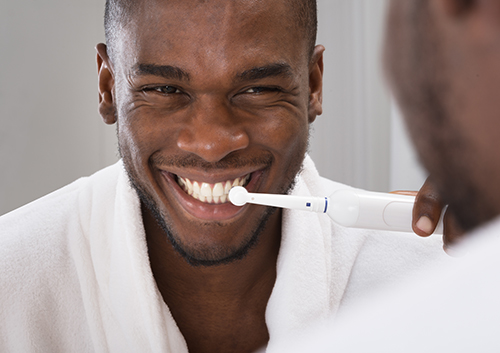Will my child benefit from early orthodontic treatment?
April 17th, 2020

According to the American Association of Orthodontists, orthodontic treatment for children should start at around age seven. Dr. Viney Saini can evaluate your child’s orthodontic needs early on to see if orthodontic treatment is recommended for your son or daughter.
Below, we answer common questions parents may have about the benefits of early childhood orthodontics.
What does early orthodontic treatment mean?
Early orthodontic treatment usually begins when a child is eight or nine years old. Typically known as Phase One, the goal here is to correct bite problems such as an underbite, as well as guide the jaw’s growth pattern. This phase also helps make room in the mouth for teeth to grow properly, with the aim of preventing teeth crowding and extractions later on.
Does your child need early orthodontic treatment?
The characteristics and behavior below can help determine whether your little one needs early treatment.
- Early loss of baby teeth (before age five)
- Late loss of baby teeth (after age five or six)
- The child’s teeth do not meet properly or at all
- The child is a mouth breather
- Front teeth are crowded (you won’t see this until the child is about seven or eight)
- Protruding teeth, typically in the front
- Biting or chewing difficulties
- A speech impediment
- The jaw shifts when the child opens or closes the mouth
- The child is older than five years and still sucks a thumb
What are the benefits of seeking orthodontic treatment early?
Jaw bones do not harden until children reach their late teens. Because children’s bones are still pliable, corrective procedures such as braces are easier and often faster than they would be for adults.
Early treatment at our Clarksburg, MD and Frederick, MD office can enable your child to avoid lengthy procedures, extraction, and surgery in adulthood. Talk with Dr. Viney Saini today to see if your child should receive early orthodontic treatment.



